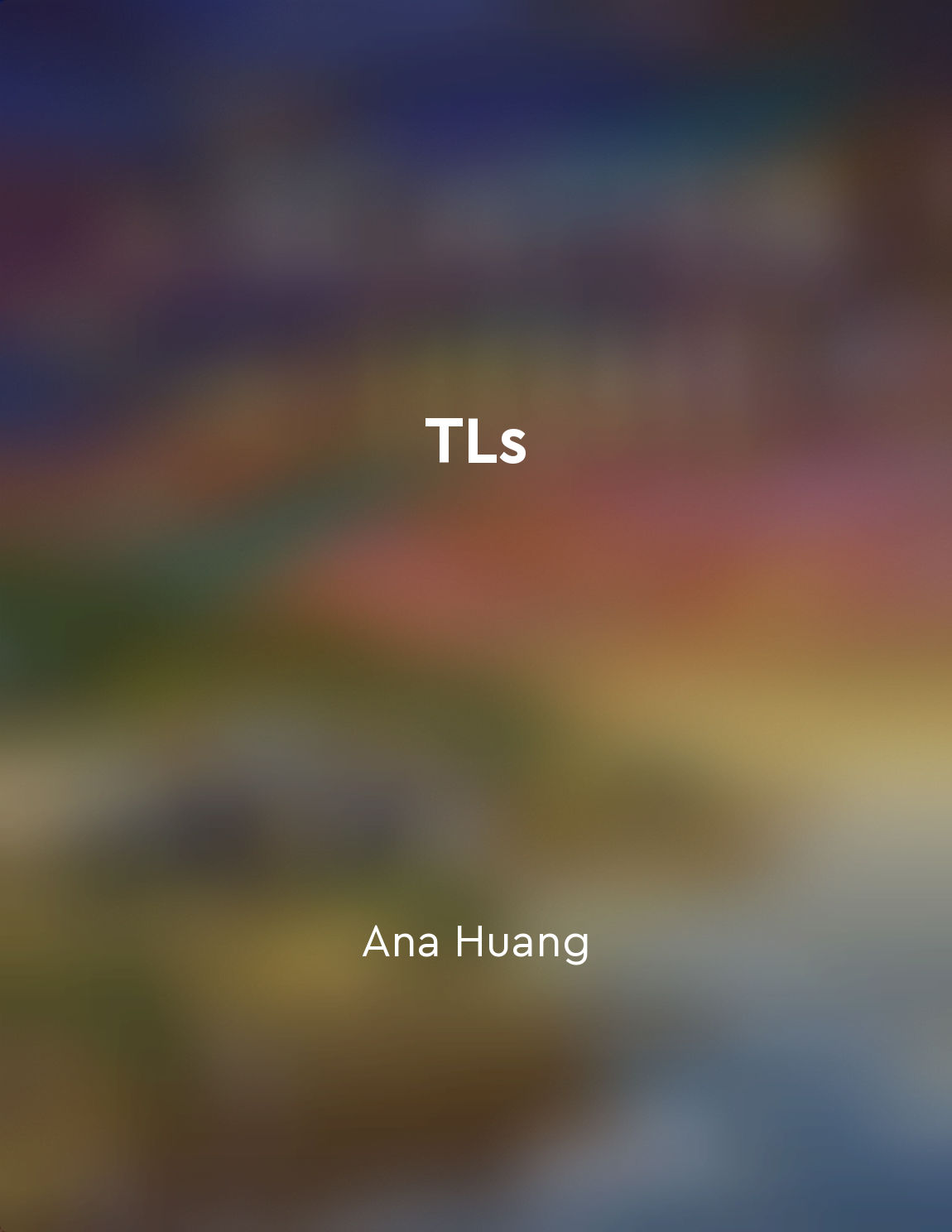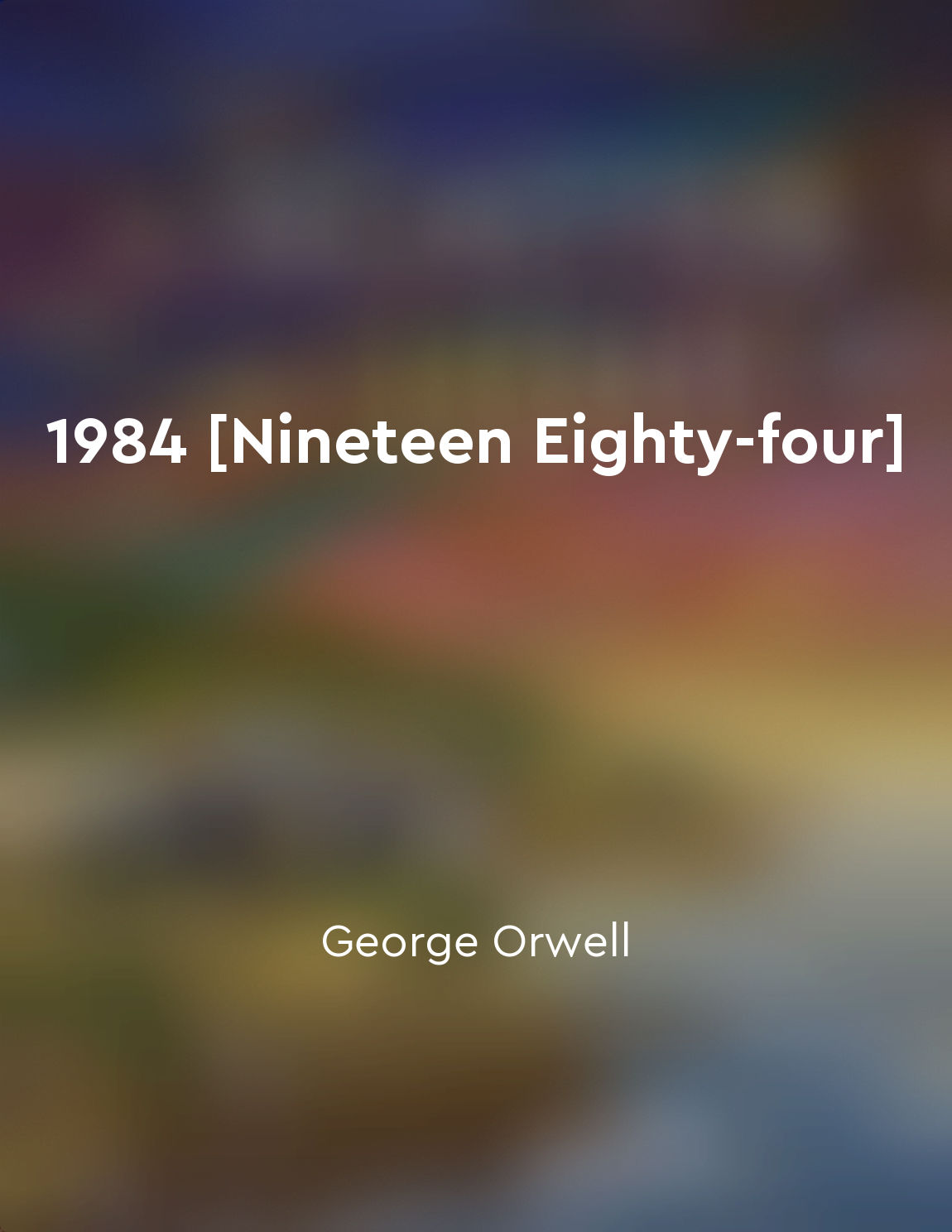Individual rights are sacrificed for the collective good from "summary" of Darkness at Noon by Arthur Koestler
In the struggle for power, sacrifices are inevitable. Sacrifices of individuals for the greater good of the collective. This concept lies at the heart of the ideological battle depicted in the novel "Darkness at Noon". The protagonist, Rubashov, grapples with this very dilemma as he navigates the treacherous waters of a totalitarian regime. His own personal beliefs and freedoms are constantly at odds with the needs of the Party and the revolution it seeks to achieve. Throughout the novel, Rubashov is faced with the harsh reality that in order to achieve the collective good, individual rights must be subordinated. This is exemplified in the Party's ruthless pursuit of power and control, where any dissent or deviation is swiftly dealt with. Rubashov himself becomes a victim of this system, as he is forced to confront his own beliefs and principles in the face of the Party's demands. As Rubashov grapples with the sacrifices he must make for the greater good, he is forced to confront the contradictions inherent in the Party's ideology. The Party claims to be working towards a utopian society where all are equal, yet in reality, it demands blind obedience and conformity from its members. This tension between the Party's ideals and its methods highlights the inherent conflict between individual rights and the collective good. Rubashov's internal struggle reflects the larger ideological battle at play in the novel. The Party's relentless pursuit of power and control requires the sacrifice of individual autonomy and freedom. This sacrifice is justified in the name of the revolution and the greater good of society. However, as Rubashov comes to realize, this sacrifice comes at a great cost – not only to the individual but to the very ideals the Party claims to uphold. In the end, "Darkness at Noon" serves as a powerful exploration of the complexities and contradictions inherent in the pursuit of the collective good. It forces us to confront the uncomfortable truth that in the quest for power, sacrifices must be made – even if those sacrifices come at the expense of individual rights and freedoms.Similar Posts
Combat veteran searches for a woman's missing West Point class ring
Reacher saw the ring in a pawnshop window. It wasn't the biggest diamond in the world, but it was a West Point class ring. It b...

TLs must confront their past to understand their future
To truly grasp where we are headed, we must first look back at where we have been. The past shapes us in ways we may not even r...

Seeking closure
In life, there are moments that leave us feeling incomplete, unresolved. We find ourselves yearning for something more, somethi...
Memory is unreliable in a propagandadriven world
In a world where propaganda reigns supreme, memory becomes a treacherous thing. The Party controls the past, present, and futur...
He is caught between good and evil
In his journey, he finds himself standing at a crossroads where the path of good and evil diverges. The choice is not an easy o...

War is fabricated to justify government actions
War, in its essence, is nothing but a tool in the hands of those who seek power. It is a means to an end, a way to manipulate t...

Government control extends to personal relationships
In the society depicted in '1984', the Party seeks to control every aspect of its citizens' lives, including their personal rel...
The fragility of life and the inevitability of death
Life, with all its complexities and uncertainties, is inherently fragile. It is a delicate balance of joy and sorrow, of love a...
Providing insights into human nature and morality
In the unfolding of events in "A Tale of Two Cities," we witness the complexities of human nature and morality laid bare before...
Betrayal is a common theme in politics
Betrayal is an essential part of the political game. It is a necessary evil that often plays a central role in the power strugg...
